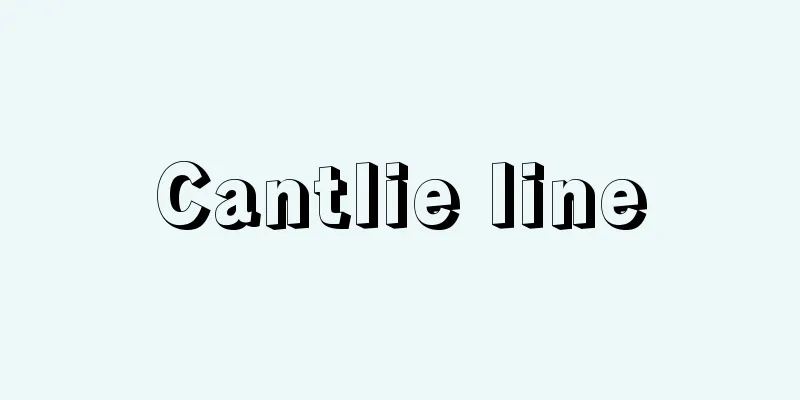German Revolution - Doi Tsukakumei (English spelling) Deutsche Revolution German

|
A revolution that took place in November 1918 in Germany that ousted the Kaiser and other princes. It is also known as the "November Revolution," but in discussions since around 1950 regarding the nature of this democratic revolution that led from the German Empire to the Weimar Republic, emphasis has been placed on the revolutionary transition period, and it is considered to be the "German Revolution of 1918-19." Opinions differ as to when the transition period ended, but the National Assembly elections on January 19, 1919 are generally recognized as a turning point. This is because the National Assembly convened in Weimar accepted the Treaty of Versailles, confirming Germany's international status, and enacted a new constitution, laying the foundations for domestic policy. [Teruo Yoshida] ProgressAs the First World War dragged on, the German people's sacrifices became unbearable, and their hopes for peace grew, as shown by the great workers' strike in January 1918. After the defeat on the Western Front in August of that year, the military, fearing a total collapse, ceded dictatorial rule, and in October, the first parliamentary government, led by Max von Baden, was established, which began peace negotiations and democratic reforms. However, the peace negotiations did not progress, and the people began to demand the abdication of Kaiser Wilhelm II. The German Navy, ignoring this situation, ordered a fleet to set out to challenge the British fleet to a decisive battle. In response, the sailors rebelled against the "death sortie" in the naval port of Kiel on November 4, and in solidarity with the workers, formed the Räte (meaning "council," the German translation of "soviet"). This movement quickly spread to port cities and inland. On November 7, 1918, a revolution broke out in Munich, the capital of the Kingdom of Bavaria, overthrew the monarchy, and the Workers' and Soldiers' Council seized power. A general strike also broke out in Berlin on November 9. Max von Baden asked the Kaiser to abdicate, but as this did not go anywhere, he took it upon himself to declare the Kaiser's abdication and handed the position of Chancellor over to Ebert of the Social Democrats. The Kaiser went into exile in the Netherlands the following day, the 10th. An armistice was signed with the Allied Powers on the 11th. Meanwhile, on the previous day, the 10th, the Berlin Workers' and Soldiers' Council Conference approved the formation of a People's Commissar government. This was made up of the Social Democrats and the Independent Social Democrats, and Ebert, who led this group, made the immediate tasks of maintaining order, guaranteeing the people's livelihood, preparing for a national assembly, and concluding a peace treaty, and for this he deemed the cooperation of the military, bureaucrats, capitalists, and others essential. As early as October 1918, capitalists anticipated revolution and began contacting labor unions, and on November 15th they concluded a labor-management agreement, making major concessions such as an eight-hour workday and recognition of labor unions in an attempt to keep workers within the system. There were strong voices among workers calling for the realization of socialism, and coal miners in the Ruhr in particular demanded the "socialization" of the mining industry. However, the government only set up a socialization committee, and even when the National Workers' and Soldiers' Council Conference in mid-December resolved for immediate "socialization," the government showed no enthusiasm, insisting that "socialization" would occur only after the capitalist economy had been normalized. The People's Commissars government seized supreme power, but relied on the existing administrative institutions and did not replace the existing bureaucrats with technical experts. The military was also given the role of suppressing Bolshevism, i.e. the radical elements. The National Workers' and Soldiers' Council Conference held on December 16-20, 1918 passed the so-called "Hamburg Items," which called for the complete dissolution of the military and the creation of a "national army." However, Ebert not only ignored these, but also had the National Assembly elections held on January 19, 1918, crushing the Council. [Teruo Yoshida] EndWhen it became clear that Ebert had allied himself with the reactionary forces that had been the backbone of German militarism, the Independent Social Democrats withdrew from the government. The Spartacist League, the left wing of the party, took a more confrontational stance against the government, and at the end of December 1918, they formed the Communist Party and decided to boycott the elections in January of the following year. The adventurists became more active. Meanwhile, the Social Democrat Noske entered Berlin at the head of the Freikord (volunteer army). On January 15, 1919, the communist leaders Karl Liebknecht and Rosa Luxemburg were killed by them. After that, Noske's troops crushed the Räthe in various places and put down strikes. In March, the general strike in Berlin was also suppressed by the volunteer army. In May, the Munich Räthe Republic was overthrown by government troops, which could be said to have dealt the final blow to the Räthe movement. It was under these circumstances that the National Assembly elections were held on January 19, 1919. A proportional representation system was adopted, with just under 90% of eligible male and female voters over the age of 20 voting. The election results showed that the basic party structure that existed before World War I had not changed. In February 1919, the National Assembly convened in Weimar. Ebert was elected president, and a "Weimar Coalition" government was formed by the Social Democrats, the Center Party, and the Democratic Party. These three parties were the pillars of Max von Baden's government. Thus ended a key phase of the German Revolution. [Teruo Yoshida] Rules of the RevolutionIn the 1950s, the German Revolution was defined in the German Democratic Republic (formerly East Germany) as a bourgeois democratic revolution carried out by proletarian means and methods. In the 1950s, in the Federal Republic of Germany (formerly West Germany), it was said that the Social Democratic Party had only two options: a social revolution through an alliance with forces aspiring to a proletarian dictatorship, or a parliamentary republic through an alliance with conservative forces, and Ebert's alliance with the conservative forces was defended. However, from the 1960s onwards, the Räte movement attracted attention, and it was argued that by linking with it, the traditional power structure had been democratized. The Räte movement was reexamined in Eastern Europe in the 1950s in relation to workers' self-government, and from the 1960s to the 1970s, it attracted renewed attention as the New Left in Western Europe explored the possibility of direct democracy. From the late 1980s to the 1990s, when the Cold War ended and the socialist regimes of the Soviet Union and Eastern Europe collapsed, the Marxist perspective that had led research up until then, which had been based on the Russian Revolution as an implicit assumption, began to crumble. Research began to take on a broader perspective, including the role of women in the revolution and issues regarding the consciousness of the masses, and more free-flowing research began to take place. [Teruo Yoshida] "A History of the Establishment of the Weimar Republic" by A. Rosenberg, translated by Ashikaga Sueo (1969, Misuzu Shobo)" ▽ "The German Revolution" edited by Nomura Osamu (1974, Heibonsha)" ▽ "Karl and Rosa: Fragments of the German Revolution" by Clara Zetkin, translated by Kurihara Yu (1975, Otsuki Shoten)" ▽ "The German Revolution Betrayed: The Eve of Hitler" by Sebastian Haffner, translated by Yamada Yoshiaki (1989, Heibonsha)" ▽ "A History of the German Revolution" by Hayashi Kentaro (1990, Yamakawa Publishing) [References] | | | | | | | | | | | | |Source: Shogakukan Encyclopedia Nipponica About Encyclopedia Nipponica Information | Legend |
|
1918年11月、ドイツにおいて、皇帝、諸王侯が追われた革命。「十一月革命」ともよばれるが、ドイツ帝国からワイマール共和国に至るこの民主主義革命の性格をめぐる、1950年ごろからの論議のなかで革命的移行期が重視され、「1918~19年のドイツ革命」ととらえられている。移行期の終了時点については見解が分かれるが、一般には19年1月19日の国民議会選挙に一つの画期を認めている。ワイマールに招集された国民議会が、ベルサイユ条約を受諾してドイツの国際的地位を確定するとともに、新憲法を制定して内政上の基礎を据えたからである。 [吉田輝夫] 経過1918年1月の労働者の大ストライキに示されるように、第一次世界大戦の長期化に伴い、ドイツ国民の犠牲は耐えがたく、平和への期待は強まった。同年8月西部戦線で敗れると、軍部は全面的崩壊を恐れて独裁的支配を譲り、10月、初めて議会に基づくマックス・フォン・バーデン政府が成立し、和平交渉を始めるとともに民主的改革に着手した。だが和平交渉ははかどらず、国民には皇帝ウィルヘルム2世の退位を要求する声が高まった。ドイツ海軍は、このような状況を無視して、イギリス艦隊に決戦を挑もうと、艦隊出撃を命じた。これに対し、水兵たちは「死の出撃」に反抗し、11月4日キール軍港で反乱、労働者と連帯してレーテRäte(評議会の意。「ソビエト」のドイツ語訳)を形成した。この運動はたちまち港湾都市に波及し、内陸部にも拡大した。 1918年11月7日、バイエルン王国の首都ミュンヘンに革命が起こり、王制は打倒され、労兵レーテが権力を掌握した。また、11月9日、ベルリンにゼネストが起こった。マックス・フォン・バーデンは皇帝に退位を求めたが、要領を得ないため、自らの責任で皇帝の退位を宣言し、社会民主党のエーベルトに宰相職を譲った。翌10日、皇帝はオランダに亡命した。11日、連合国との間に休戦条約が調印された。一方、その前日の10日、ベルリン労兵レーテ大会は人民委員政府を承認した。これは社会民主党と独立社会民主党から構成されたが、これを指導したエーベルトは、当面の課題を、秩序の維持、国民生活の保障、国民議会の準備、さらに平和条約の締結に置き、このため軍部、官僚、資本家などの協力を不可欠としたのである。 すでに1918年10月、資本家は革命を予想し、労働組合との接触を始め、11月15日には労資協定を結び、8時間労働日、労働組合の承認など大幅な譲歩をして労働者を体制内につなぎとめようとした。労働者のなかには社会主義の実現を求める声も強く、とくにルールの炭鉱労働者は鉱山業の「社会化」を要求した。だが政府は社会化委員会を設置するにとどまり、12月中旬の全国労兵レーテ大会が即時「社会化」を決議しても、資本主義経済を正常化したうえで「社会化」するとして、熱意を示さなかった。 人民委員政府は最高権力を掌握したが、従来の行政機関に依存し、これまでの官僚を技術的専門家として更迭しなかった。軍部にもボリシェビズムすなわち急進分子を抑圧する役割が与えられた。1918年12月16~20日の全国労兵レーテ大会はいわゆる「ハンブルク項目」を決議し、軍の徹底的解体、「国民軍」の創設などを要求したが、エーベルトはこれを無視しただけでなく、翌19年1月19日の国民議会選挙を決定させ、レーテを圧殺したのである。 [吉田輝夫] 終息エーベルトが、ドイツ軍国主義の支柱であった反動勢力と同盟したことが判然とすると、独立社会民主党は政府から離脱した。同党左派のスパルタクス団は、政府との対決姿勢を強め、1918年12月末共産党を結成し、翌年1月の選挙ボイコットを決定した。冒険主義者の活動は積極化した。一方、社会民主党のノスケは義勇軍(フライコール)の先頭に立ってベルリンに入った。19年1月15日、共産党の指導者カール・リープクネヒトとローザ・ルクセンブルクは彼らの手で殺害された。以後、ノスケの軍隊は各地でレーテを押しつぶし、ストライキを鎮圧した。3月、ベルリンのゼネストも義勇軍に抑圧された。5月、ミュンヘンのレーテ共和国は政府軍によって打倒されたが、これはレーテ運動にとどめを刺したといってよい。 このような状況のなかで1919年1月19日国民議会選挙が行われた。比例代表制が採用され、20歳以上の男女有権者の90%弱が投票した。選挙の結果は、第一次世界大戦前の基本的な政党構造が変化していないことを示した。19年2月、ワイマールに国民議会が招集された。大統領にエーベルトが選出され、社会民主党、中央党、民主党による「ワイマール連合」政府が形成された。これら3党はマックス・フォン・バーデン政府の支柱であった。こうしてドイツ革命は、主要局面の幕を閉じる。 [吉田輝夫] 革命の規定ドイツ革命については、ドイツ民主共和国(旧東ドイツ)では1950年代、プロレタリア的手段と方法でなされたブルジョア民主主義革命と規定された。ドイツ連邦共和国(旧西ドイツ)では1950年代、社会民主党にはプロレタリア独裁を志向する勢力との同盟による社会革命か、保守勢力との同盟による議会制共和国かの二者択一しかなかったとされ、エーベルトの保守勢力との同盟が弁護されたが、60年代以後レーテ運動が注目を集め、これと結び付くことで伝統的権力構造は民主化されたのではないか、と論じられた。レーテ運動については、1950年代の東欧諸国で労働者自治との関連で再検討され、60年代から70年代には西欧の新左翼が直接民主主義の可能性を模索するなかで、レーテ運動が改めて注目された。1980年代末から90年代にかけて、冷戦が終わり、ソ連・東欧の社会主義国の政権が崩壊すると、それまで研究を主導してきたマルクス主義の側でも、暗黙の前提とされたロシア革命を基準とする見方がくずれ、革命での女性の役割、大衆の意識の問題などにも視野が広げられ、自由な研究がみられるようになった。 [吉田輝夫] 『A・ローゼンベルク著、足利末男訳『ヴァイマル共和国成立史』(1969・みすず書房)』▽『野村修編『ドイツ革命』(1974・平凡社)』▽『クララ・ツェトキン著、栗原佑訳『カールとローザ――ドイツ革命の断章』(1975・大月書店)』▽『セバスティアーン・ハフナー著、山田義顕訳『裏切られたドイツ革命――ヒトラー前夜』(1989・平凡社)』▽『林健太郎著『ドイツ革命史』(1990・山川出版社)』 [参照項目] | | | | | | | | | | | | |出典 小学館 日本大百科全書(ニッポニカ)日本大百科全書(ニッポニカ)について 情報 | 凡例 |
<<: German Customs Union - German Customs Union
>>: German Music - German Music
Recommend
Wakato Bridge
This large suspension bridge on National Route 19...
Mustel, A. (English spelling) MustelA
…a type of percussion instrument. It was invented...
Yatappe of Seki - Yatappe of Seki
Hasegawa Shin wrote this play for Shin Kokugeki, w...
Rhododendron keta - Rhododendron keta
→ Magnolia sieboldii Source: Shogakukan Encyclope...
Amakusa Matsushima
Located in the southwestern part of Kumamoto Prefe...
Lath - Lath (English spelling)
The original meaning of the word is lath, komai, ...
The King's Witness - Oushinchi
…909-945. A state founded in Fujian by the brothe...
Oil dialect - Oil dialect
...When we simply say French, we often mean this ...
Akatachi (English spelling) bandfishes
A general term for marine fishes belonging to the...
Floating zenith telescope
When installing a zenith telescope for precise obs...
Chalcondyle(a)s, D. - ChalcondylesD
…The latter was translated into various Western l...
Republic of Ireland - Ireland
A country that occupies most of the island of Irel...
Hot spring village - Onsen shuraku
A settlement that developed as a tourist and recre...
Tricyrtis macrantha (English spelling)
…[Hiroshi Takahashi]. … *Some of the terminology ...
Tremella fuciformis (English spelling) Tremella fuciformis
…These are taxonomically distinct and are disting...









